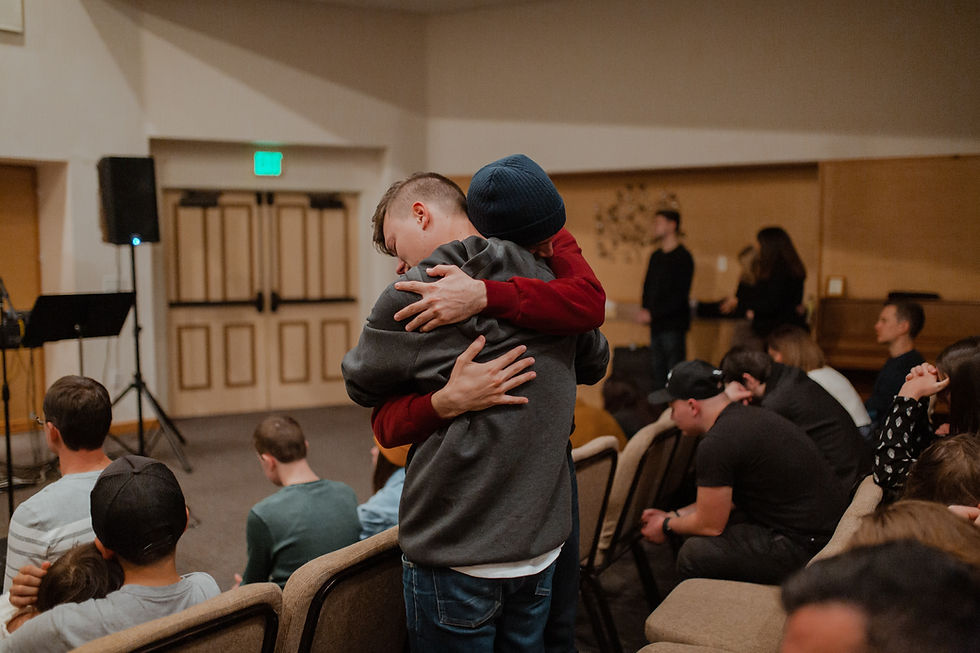Let Go to Move Forward: The Healing Power of Forgiveness
- RUACH Counseling

- Dec 13, 2024
- 3 min read
Updated: Dec 13, 2024

As we approach the end of the year, many of us reflect on what we’ve carried through 2024—joys, lessons, and, for some, the heavy burden of unforgiveness. Bitterness and resentment are quiet thieves. They infiltrate our hearts, minds, and even bodies, stealing our peace, joy, and ability to move forward. Yet, we often cling to these emotions as if they somehow protect us from further hurt.
But what if holding on to unforgiveness is doing more harm than good? Let’s explore how resentment impacts us, what forgiveness truly means, and why releasing that burden before 2025 is the ultimate gift you can give yourself.
The Cost of Holding On to Resentment
Unforgiveness doesn’t just sit quietly in the background—it actively affects your life. Mentally, it clouds your judgment, causing you to relive painful moments and stunting your emotional growth. Physically, it takes a toll, leading to stress-related health issues such as high blood pressure, weakened immunity, and chronic pain. Spiritually, it keeps you tethered to the past, making it difficult to fully embrace God’s peace and purpose for your life.
Here are three signs you may be holding on to resentment:
Replaying the Offense. If you find yourself frequently thinking about or talking about how someone hurt you—especially in vivid detail—you may still be holding on to bitterness. This mental replay doesn’t change the past but keeps the pain fresh in your heart.
Avoiding or Reacting Strongly to the Offender. Feeling uneasy, angry, or anxious at the mere mention of someone’s name is a sign of unresolved resentment. Avoidance or an inability to engage without hostility indicates that the wound hasn’t healed.
Difficulty Trusting Others. Resentment can spill over into other relationships, making you suspicious, guarded, or overly critical of people who remind you of the person who hurt you. This limits your ability to connect and build healthy relationships.

What Forgiveness Is—and Isn’t
Forgiveness is one of the most misunderstood concepts, often mistaken for excusing bad behavior or pretending nothing happened. Let’s set the record straight:
Forgiveness is NOT:
Forgetting the offense or erasing the memory.
Excusing the wrongdoing or minimizing its impact.
Reconciliation (though it may be a part of forgiveness if both parties work toward healing).
Forgiveness IS:
A deliberate decision to release resentment and the desire for revenge.
An act of obedience to God, reflecting His grace and mercy toward us.
A way to free yourself from the emotional and spiritual chains of the offense.
Why Forgiveness Matters
Forgiveness isn’t about the person who hurt you—it’s about you. When you forgive, you’re not saying what they did was okay; you’re choosing to no longer let their actions control your life. Unforgiveness locks you in a cycle of pain, but forgiveness breaks that chain, allowing you to reclaim your peace and move forward.

Release Before 2025
As 2024 comes to a close, take inventory of your heart. Are you holding on to bitterness, resentment, or anger? What grudges have followed you from season to season? Ask yourself: Is it worth carrying this into the new year?
Here’s a simple exercise to release what’s weighing you down:
Identify the Hurt. Write down the offense and how it made you feel. Acknowledge the pain, but don’t dwell on it.
Pray for Strength. Ask God to help you forgive. Be honest about your struggle, but trust that His grace is sufficient.
Speak Forgiveness. Whether in prayer, aloud, or in a letter (that you don’t have to send), say, “I forgive you, [name], for [offense]. I release this hurt to God.”
Commit to Moving Forward. Forgiveness is a process. Remind yourself daily of your decision to let go, especially when old feelings resurface.
The Gift of Freedom
Entering 2025 with a lighter heart and clearer mind is a priceless gift you can give yourself. Forgiveness doesn’t mean you forget or tolerate injustice—it means you choose freedom over bondage. Let go of what no longer serves you and step into the new year with open hands and a healed heart.
What’s one thing you’re ready to release before 2025? Start today—freedom is waiting.



Comments